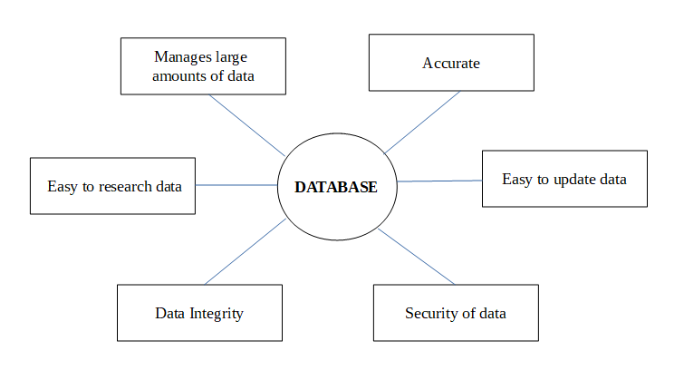
 Data Structure
Data Structure Networking
Networking RDBMS
RDBMS Operating System
Operating System Java
Java MS Excel
MS Excel iOS
iOS HTML
HTML CSS
CSS Android
Android Python
Python C Programming
C Programming C++
C++ C#
C# MongoDB
MongoDB MySQL
MySQL Javascript
Javascript PHP
PHP
- Selected Reading
- UPSC IAS Exams Notes
- Developer's Best Practices
- Questions and Answers
- Effective Resume Writing
- HR Interview Questions
- Computer Glossary
- Who is Who
Why do we need a Database
A database is a collection of data, usually stored in electronic form. A database is typically designed so that it is easy to store and access information.
A good database is crucial to any company or organisation. This is because the database stores all the pertinent details about the company such as employee records, transactional records, salary details etc.

The various reasons a database is important are −
Manages large amounts of data
A database stores and manages a large amount of data on a daily basis. This would not be possible using any other tool such as a spreadsheet as they would simply not work.
Accurate
A database is pretty accurate as it has all sorts of build in constraints, checks etc. This means that the information available in a database is guaranteed to be correct in most cases.
Easy to update data
In a database, it is easy to update data using various Data Manipulation languages (DML) available. One of these languages is SQL.
Security of data
Databases have various methods to ensure security of data. There are user logins required before accessing a database and various access specifiers. These allow only authorised users to access the database.
Data integrity
This is ensured in databases by using various constraints for data. Data integrity in databases makes sure that the data is accurate and consistent in a database.
Easy to research data
It is very easy to access and research data in a database. This is done using Data Query Languages (DQL) which allow searching of any data in the database and performing computations on it.

